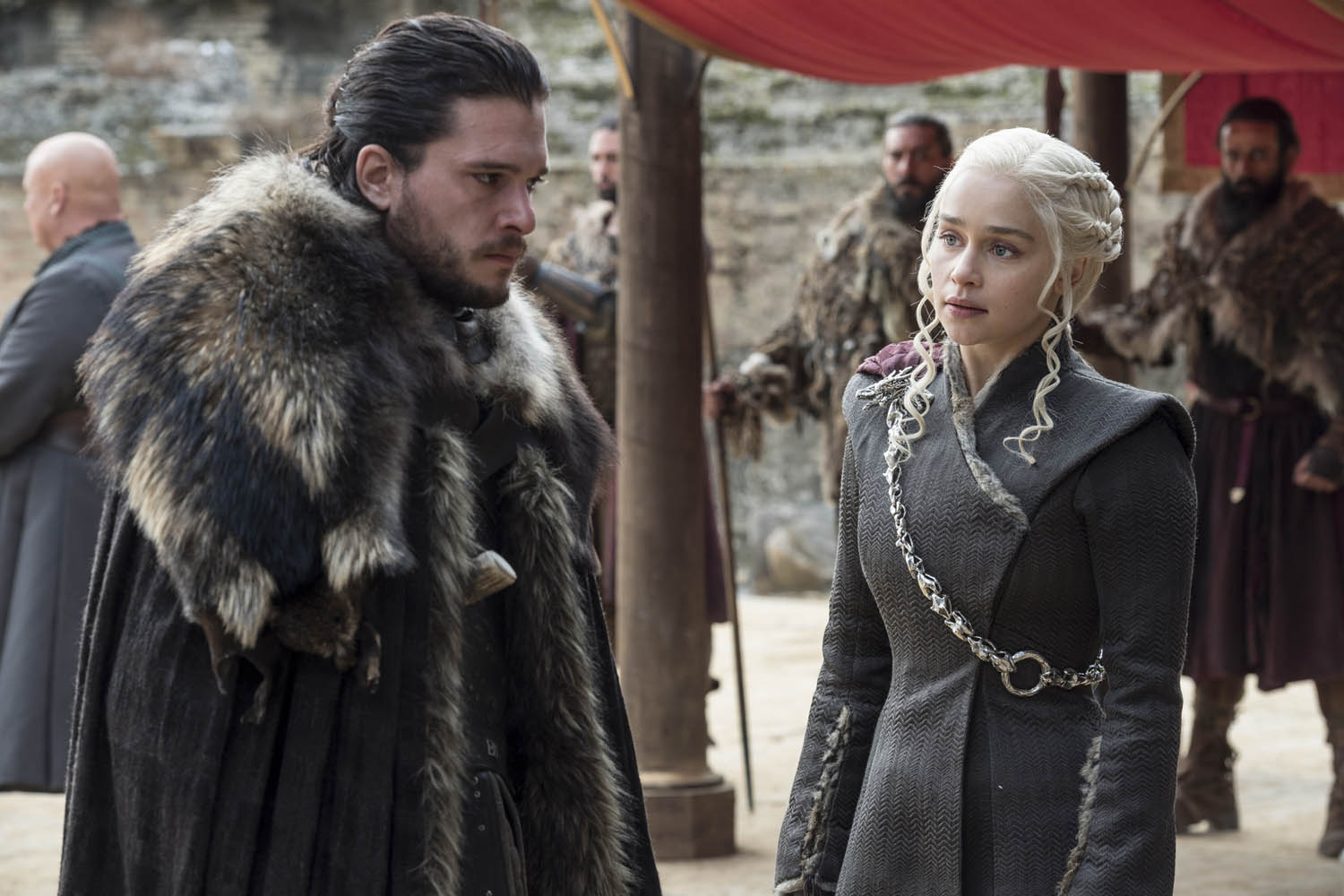Advertisement
7 Issues Of Representation As 'Game Of Thrones' Enters Its Final Season

So many questions loom large over the eighth and final season of the unprecedented sprawl of a television series that is "Game of Thrones." On May 19, when the last installment airs (they arrive in a range from 54 to 80 minutes), we may not know who or what is alive or dead, let alone who wins the throne.
Yet the biggest question, for me, is if the show will deliver an ending that satisfies the 2019 hunger for representation? Can the “how” overshadow a foreseeable (Jon Snow) “who?”
Demands have shifted in entertainment culture since "GoT" premiered in 2011. In some regards, the show has evolved, too. With 38 Emmys (second only to SNL’s 54), the stakes are high not just for superfans but for the imprint "GoT" leaves on future TV aimed at a global audience. Here are a few aspects of representation to consider as the series of the decade culminates:
Hell Hath No Fury Like A Woman Scorned
Season One jumped out of the gates like so many HBO shows — nudity, nudity, violence, sick violence, nudity, rape — and critics have called out the gratuitous formula that made some viewers tune out for good. Yet the show has grown into one in which women helm several of the most viable factions scheming to rule Westeros. Will the commonness of sexual violence against women justify Daenerys, siren of the un-everybody, taking the throne? How about the tough as nails Arya Stark? Possibly. But the show has always held a candle for the far more obvious (and culturally comfortable) Jon Snow, now conveniently revealed to have royal blood.
We Will Never Be Royal
Speaking of royal blood, while the Starks represent the potential strength of family loyalty, plenty of other ruptured bonds (Tyrion’s crossbow, for example) point to a breakdown of noble rule. Herein lies a chance to champion classlessness over feudalism. Or maybe a far more radical system that we earthbound have yet to fathom. Imagine Cersei warmly embracing Gilly and her child and creating policies to protect their common interests. Now that would make unforgettable, perhaps unbelievable, television.
We Will Never Be Magic, Either
Unexplained forces like Bran’s ability to teleport or Melisandre’s resurrection spells have rendered deliciously mystical plot turns. Like the eagles in “Lord of the Rings: Return of The King,” one can forget that magic, especially expressed through an animal-human bond, may bubble up on "GoT" at any moment. It’s part of the fun, and part of what could ultimately unite or disrupt whatever entity ends up leading the Seven Kingdoms. If magic is part of the answer, it will be left as an allegory that the magic-less earthbound must interpret.
White Walkers Aren’t The Only White Problem
Those who bristle at the "GoT" representation critique often point out that Westeros is foremost a fantasy and does not have to reflect a statistical 2019 reality. The counter argument is quite obviously, exactly! So why are all of the frontrunners (Starks, Snow, Lannisters, Targaryen, Night King) white? Characters of color, like Missandei and Grey Worm, have made in-roads to power and would be indispensable to a Dany-led administration. But come on. "GoT" hasn’t given them — or the Dothraki or the Dornish — enough screen time to evolve into likely winners. That’s problematic and probably won’t get resolved by series end. A lost opportunity.
Heed More Often The Very Old
As a story about families, legacies, and lineage, it would’ve been repugnant for "GoT" to leave out older characters altogether. TV avoids the gray-hair and lined faces of people over 60 all the time (make that 40 for women). While the priest-like Septons of the Faith of the Seven or Cersei’s circle of advisors looked predictably like “wise old white men,” Dianna Rigg as Olenna Tyrell threw barbs at every turn and calculated her granddaughter’s safety and ascension. "GoT" certainly could’ve raised more elders (white walkers notwithstanding) but Olenna made a memorable showing till her very last breath.
As You Exalt The Very Young
When the series began, the Starks were mostly a family of children. The arc didn’t diminish them for this. Instead it took a page from C.S. Lewis and Roald Dahl and took seriously their fears, desires, and emotional responses to their father’s death. The audience has literally watched Sansa, Arya, and Bran grow up before our very eyes. And all three remain central figures to how the saga will end, perhaps with one — or all — in charge. Other children have likewise had pivotal roles. Shireen Baratheon was one of the most sympathetic on-screen characters of the last decade, leading critics to point out that "GoT" is not afraid to murder children, leaving an ending as open as any.
A Multitude Of Bodies
One way "Game of Thrones'" fantasy element has merged well with otherwise under-represented people is in the varied abilities and sizes of characters on-screen. Indeed, perceived or real changes and “imperfections” in physical ability, especially for men, have tripped complex character arcs that fostered empathy for the other, endearing Brienne to Jaime, for example, or Theon Greyjoy to us. The list goes on. There’s hardly a man who doesn’t learn from how he doesn’t measure up, often to their father’s standards. If rejecting rigid, old-school fathers pushes Tyrion or Samwell Tarly to wisen up and spread peace instead of blood, that may make an interesting conclusion. Especially if they share the throne.
But who are we kidding? We kind of know the "who" (cough, cough, Jon Snow ... or do we?), but I'm wondering if the "how" can be representative of all the forces at play in this made up land. I tune in for the ways “GoT” doesn’t mimic the world I see around me.
